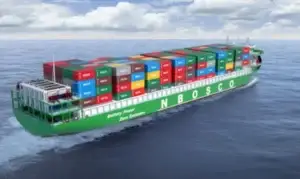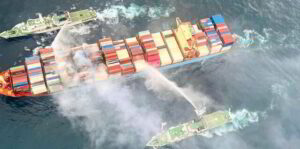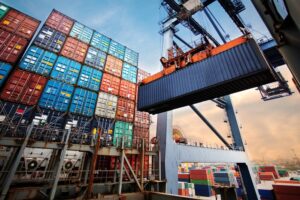The Essential Guide to Freight Forwarding: Benefits, Services, and Expert Insights
Introduction
Freight forwarding plays a crucial role in international trade, facilitating the movement of goods across global borders. This complex process involves coordinating various entities and adhering to international regulations, making it a vital part of the global supply chain. Whether you’re a business owner, a shipping enthusiast, or simply someone wanting to understand the intricacies of freight forwarding, this comprehensive guide will provide valuable insights into the process and highlight the benefits of employing a freight forwarding company.
What is Freight Forwarding?
Freight forwarding is a service that involves moving goods around the world on behalf of importers and exporters. Freight forwarders specialize in moving cargo, arranging customs clearance of goods, maintaining all documentation, overseeing cargo packing, and sometimes handling the movement of dangerous goods.
Freight forwarders are the conductors of global trade. They work closely with customs authorities, shipping companies, and other entities involved in the process. Their expertise lies in understanding and navigating complex regulations, coordinating with different parties, and ensuring that goods move seamlessly across borders.
Customs and Border Controls
One of the primary responsibilities of a freight forwarder is to manage customs clearance for goods crossing international borders. This task can be handled directly by the freight forwarder or subcontracted to a company specializing in customs broking.
The process requires significant resources, including funds to handle bonds and guarantees required for duty and tax payments. Freight forwarders also need specific software to communicate with customs authorities’ central computers as most customs functions are now electronic.
International Trade Documentation for Freight Forwarders
Accurate and well-ordered documentation is a critical aspect of international trade. Freight forwarders need to understand exactly what documents are required and when. The documents provided by the importer or exporter include invoices, packing lists, and licenses. Responsibility for hazardous goods declarations also lies with the shipper. Each mode of transport has its own document of carriage, such as air waybills for air freight, bills of lading for sea freight, and CMR consignment notes for road freight.
Packing Goods for Export
Packing goods for export requires specialist knowledge. The freight forwarder’s objective is to ensure that goods arrive at their destination in the same condition as they left the consigner, warehouse, or factory. They must also consider the ease of handling, risks in transit and delivery, and protection from unauthorized access and environmental factors. The freight forwarder needs to be aware of international regulations regarding packing materials, particularly the use of wood, as many countries have strict controls in this regard.
The Journey of Dangerous Goods
The journey of dangerous goods is filled with potential challenges. The manufacturer or shipper bears the primary responsibility for correctly classifying, packing, and documenting dangerous goods. However, if the freight forwarder is loading these items into containers or onto pallets, they must be well-versed in each aspect surrounding their movement. The rules and regulations vary depending on the mode of transport, so it’s important to understand the nuances of each.
Economic Operator Registration and Identification (EORI) Scheme
The Economic Operator Registration and Identification (EORI) Scheme is a crucial element for those involved in international shipping. It offers the benefit of faster processing of consignments, ensuring that your goods reach their destination without unnecessary delays.
Benefits of Using a Freight Forwarding Company
Choosing to work with a freight forwarding company offers a multitude of benefits:
Expertise and Experience
Freight forwarders possess the knowledge and experience necessary to navigate complex customs regulations, export controls, and documentation requirements. They are well-versed in international shipping procedures and can guide you through the entire process, ensuring your goods arrive at their destination safely, efficiently, and in compliance with all applicable laws.
Cost Savings
Freight forwarders have established relationships with carriers and shipping lines, enabling them to negotiate better rates on your behalf. Through consolidating shipments from various clients, they can also secure more competitive pricing for your cargo, leading to significant cost savings for your business.
Time Savings
Partnering with a freight forwarder allows you to focus on your core business activities while they handle the complex logistics of international shipping. They manage communication with carriers, customs authorities, and other parties involved in the shipping process, ensuring a smooth and timely delivery of your goods.
Network of Global Partners
Freight forwarders have an extensive network of global partners that allow them to provide end-to-end shipping solutions. This network ensures seamless coordination across various stages of the shipping process, from pick-up at the origin to final delivery at the destination.
Customized Solutions
Freight forwarders offer a range of services that can be tailored to your specific needs. Whether you require air, sea, or land transportation, they can develop a customized solution that meets your unique shipping requirements, budget, and timeline.
Services Offered by Freight Forwarding Companies
Freight forwarding companies provide a comprehensive range of services to facilitate the movement of goods across international borders. Some of the key services they offer include:
- Transportation
Freight forwarders coordinate and manage the transportation of goods via air, sea, or land. They handle the selection of suitable carriers, booking of cargo space, and tracking of shipments from origin to destination.
- Customs Clearance
One of the primary responsibilities of a freight forwarder is to handle customs clearance for goods crossing international borders. They prepare and submit necessary documentation, calculate duties and taxes, and liaise with customs authorities to ensure smooth and efficient clearance of your shipments.
- Warehousing and Storage
Freight forwarding companies often provide warehousing and storage services for goods awaiting transportation or customs clearance. They can help you manage your inventory and provide value-added services like order fulfillment, pick and pack, and labeling.
- Cargo Insurance
To protect your goods from loss or damage during transit, freight forwarders can arrange cargo insurance on your behalf. They can help you understand the various insurance options available and guide you in selecting the right coverage for your shipments.
- Risk Management and Compliance
Freight forwarders assist in mitigating risks associated with international shipping by ensuring compliance with various regulations, such as those governing hazardous materials, import/export controls, and security requirements. They can provide guidance on best practices and help you navigate complex regulatory environments.
Conclusion
Using a freight forwarding company offers numerous benefits and services that can simplify and streamline the complex process of international shipping. By leveraging their expertise, experience, and global network, you can save time and money, reduce risks, and focus on growing your business. Freight forwarding is indeed the backbone of global trade, serving as a vital link between importers and exporters, ensuring the smooth and efficient movement of goods around the world.
The Dawn of a New Era: The Arrival of the MSC Tessa, World’s Largest Container Ship













